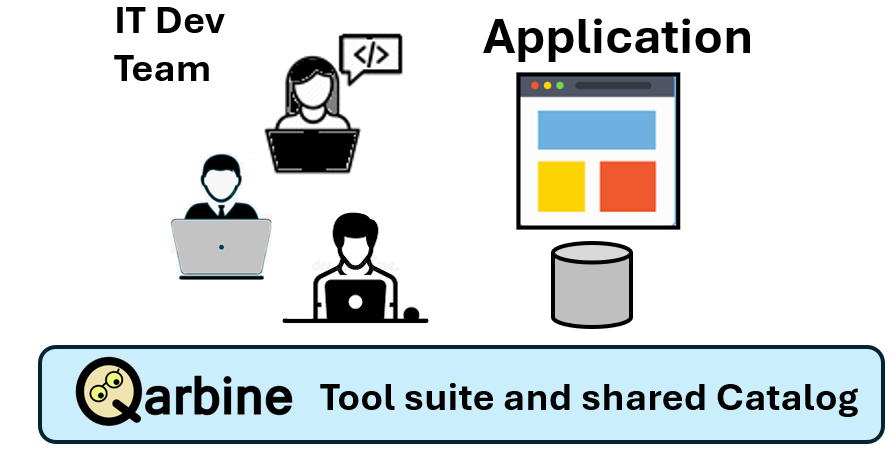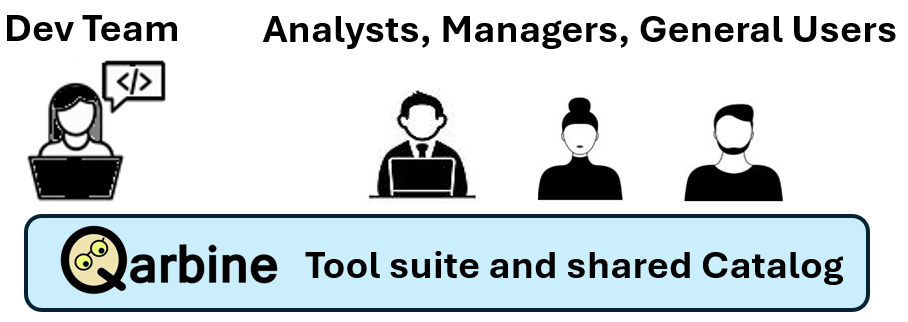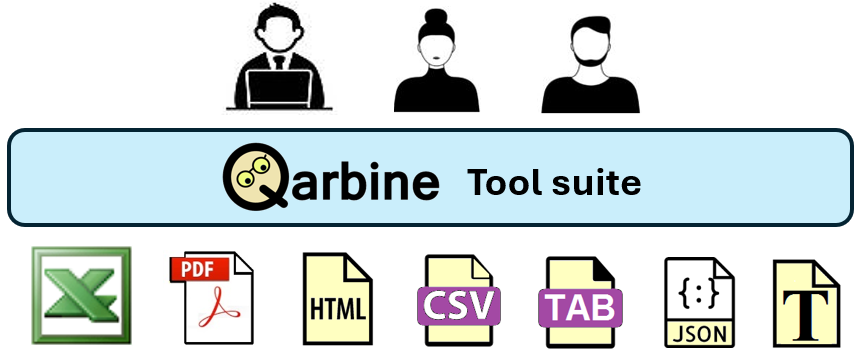Collaboration with Teams and Tools
Summary
Qarbine is designed to help businesses leverage their investments in modern data, cloud services, artificial intelligence (AI), retrieval augmented generation (RAG), and other technologies. Qarbine enhances productivity by promoting collaboration
- across teams,
- among peer team members,
- using AI co-pilots and RAG output,
- across applications, and
- with popular business tools.
Peer Collaboration
Qarbine enables dev team members skilled in modern data querying to define components that are easily discovered and reused by their peers. The component can be used within the toolset, or to create embedded analytics for applications. Qarbine’s catalog can also be used to share documents and even text notes (i.e. MongoDB Compass or other online database tool queries).

Cross Team Collaboration
Components and analyses created by one team can be leveraged by other teams. The Qarbine catalog enables flexible searching, discoverability, and provides various options for enterprises to manage access. Analysts can quickly reuse optimized queries authored by others and get right to their data research task. Each team does what they are best at doing.

AI Co-pilot and RAG Interactions
Broad details of these types of interactions within Qarbine components and tools are described in the Tutorials;AI Integrations section. Co-pilot usage includes query authoring and explanation guidance, while Retrieval Augmented Generation (RAG) is useful for dynamic analysis commentary.
Embedded Application Collaboration
Embedding Qarbine into applications enables users to seamlessly collaborate across the custom application world and Qarbine’s interactive, analytic, AI driven insights. Application objects and data are naturally shared across the two worlds. This enhances your application’s productivity and the overall user experience (UX).

Popular Tool Collaboration
Qarbine’s PDF exporting feature provides an easy way to share analyses via email or otherwise. Tools like Excel and other spreadsheet tools also are vital for many businesses. Qarbine can export its data, query results and analyses into formats easily imported by these tools. Qarbine can perform the modern data interaction and analysis that these tools are incapable of performing. This can completely avoid error prone ETL processes that result in stale data causing invalid insights and harmful business decisions!
